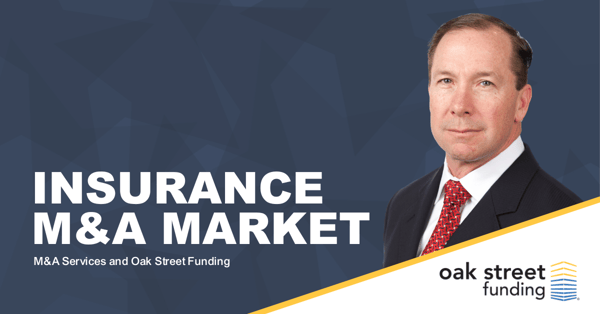As interest rate cuts, increased private equity activity, and potential changes to capital gains rates fuel a strong M&A market, insurance agency valuations are rising to all-time highs, necessitating more thorough financial due diligence for increasingly complex deals that often include seller equity stakes and earnouts.


Insurance agency valuations are holding strong and even increasing in a strong mergers and acquisitions market (M&A) according to Chris Hughes, managing director of insurance distribution at M&A Services. Hughes shared his thoughts on the M&A outlook for the near future, valuations, the need for financial and legal due diligence, and the complexity of deals.
 Key Observations
Key Observations
M&A Outlook
“I think we're going to have a very active next six to nine months in the marketplace, definitely in the next three months,” says Hughes. He pointed out three factors leading to the likelihood of an increasingly strong M&A market:
-
-
- Interest rate cuts – The recent rate cuts by the Fed are reducing the cost of borrowing, which makes it more appealing for acquirers to get into the market.
- More private equity (PE) in marketplace in the first quarter – During the white-hot M&A market of 2021, a lot of deals were made with three-year earnouts; as those are being closed out this year, more private equity money will be available for new acquisitions.
- Capital gains rate uncertainties tied to the election – Depending on the outcome of the election, the capital gains rate could increase or decrease; sellers may be motivated to get ahead of that uncertainty and lock in today’s rate.
Hughes said with interest rates decreasing and earnouts being paid, “… there's a lot of gasoline being poured into the M&A marketplace right now.”
Even though recent increased interest rates put some downward pressure on M&A activity, there’s never a bad time to make a good acquisition. If the fundamentals of the deal are strong, the cost of borrowing can be worked into the deal.
Valuations
Hughes said he is seeing valuations ranging from 10 to 12 times EBITDA (earnings before interest, taxes, depreciation, and amortization) for agencies in the $1 million to $2.5 million range. The recent rate cuts by the Fed have put upward pressure on valuations that were already at an all-time high, said Hughes.
Many variables go into determining an agency’s valuation. Two similar agencies in the same market can have different valuations based on factors such as:
-
-
- The size, location, growth, and profitability of the agency
- The quality, diversity, and retention of the client base
- The type, mix, and commission rates of the products sold
- The reputation, brand, and market position of the agency
- The strength, skills, and loyalty of the staff and producers
- The operational efficiency, systems, and processes of the agency
- The potential risks, liabilities, and opportunities for the agency
Financial and Legal Due Diligence
With these high valuations, Hughes pointed out, there is an increasing need for financial and legal due diligence. The agency’s EBITDA must be adjusted to reflect any expenses that will not continue after the sale (for example, family members on the payroll for health insurance purposes) and any new revenues that are expected.
The resulting pro forma EBITDA is coming under more scrutiny now, said Hughes. In larger deals, third-party valuation companies may be called in to make sure the adjustments hold up. In some smaller deals, the lender may be willing to use their own experts to verify the value.
Complexity of deals
Overall, deals are becoming more complex. Hughes said he sees more interest in sellers retaining a 10% to 20% equity stake in the deal. He also said earnouts have become part of nearly every deal. At Oak Street Funding, we typically finance up to about 80% of a purchase price, with the remaining 20% covered by any combination of cash equity, equity, seller note. When the seller has a stake in the ongoing performance of the company it helps to ensure a warm client handoff and promotes business continuity.
Next steps
For prospective buyers and sellers, a good first step is getting financials in order. Three years’ worth of audited financial statements and tax returns are a must. Assembling a team of advisors, including the firm’s CPA and attorney, plus an M&A specialist, ensures that people with the necessary expertise will be available when questions arise.
Finally, choosing a trusted lending partner is important. Not all lenders are alike, so it can be a wise move to choose a lender who understands the insurance industry and has many years of experience lending to agents.



/Resources%20Thumbnails%20(47).png)

/Resources%20Thumbnails%20(20).png)